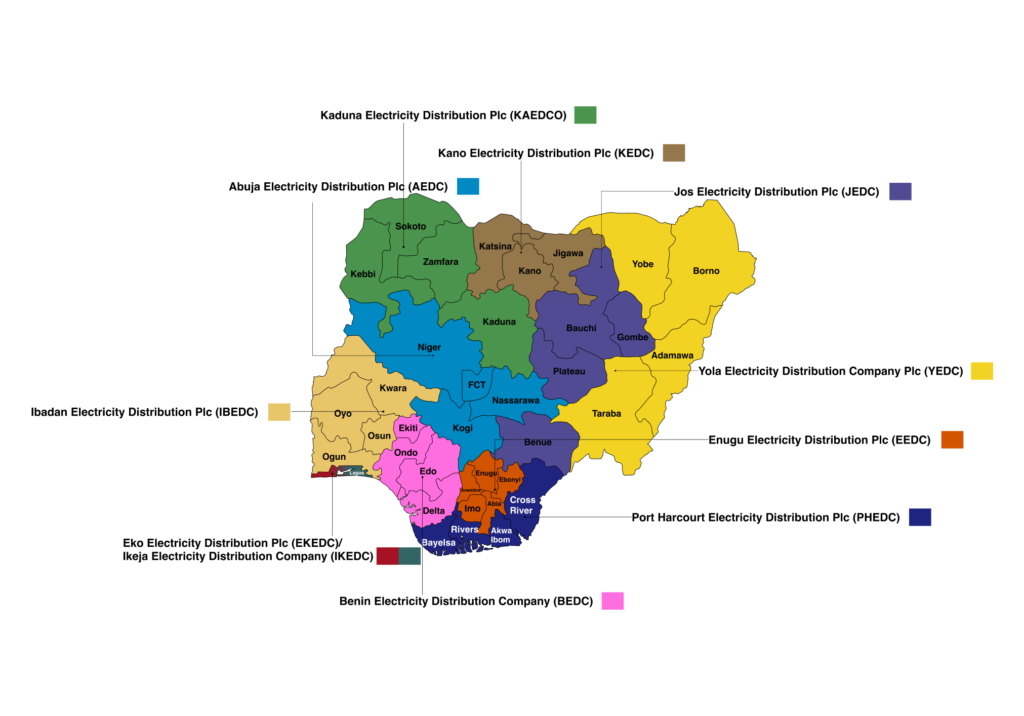Learn About the
Power Sector
Chronicle of Nigeria's Power Sector: A Detailed Journey from Early Developments to Comprehensive Modern Reforms, Highlighting Key Milestones and Transformations (1886-2023)
DisCos and their Coverage

Challenges
Challenges in the Power Sector
Government Policy and Infrastructure
- Poor planning and implementation of policies and infrastructure by the government.
- Infrastructure Deficit - The obsolete power generation, transmission, and distribution infrastructure account for poor electricity supply and liquidity crisis, discouraging investments.
- Investment is required to replace deteriorating equipment, establish new power plants, repair pipelines, and install boosters and compressors that provide adequate pressure.
- Market Deficit - Market deficit in this context includes limited access to infrastructure, inadequate power generating capacity, inefficient usage capacity, lack of capital for investment, ineffective regulation, high technical losses and vandalism, insufficient transmission and distribution facilities, consumer wastage, and inappropriate market structure.
Business Model
● Issues with the business model adopted. The government needs to transition from a socialist model to a capitalist one.
Financial Issues
● Unpaid bills(most of which are from government agencies).
● Tariffs and Market shortfalls
Consumer Behavior
● Energy theft for the consumer's end.
● Consumer wastage.
